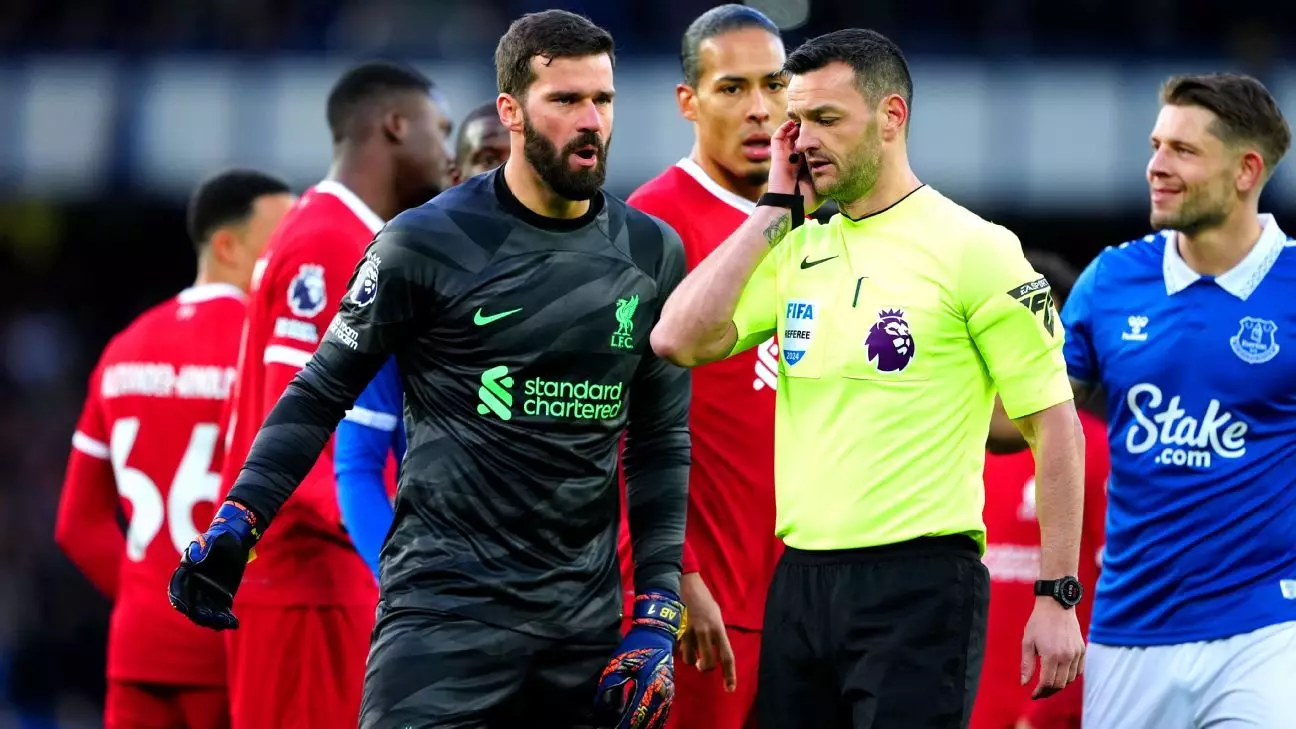English football has had a tumultuous relationship with the Video Assistant Referee (VAR) system, with incidents like the one involving Luis Díaz at Tottenham Hotspur in September 2023 haunting the reputation of referees. The negative perception of VAR among fans has only grown over the years due to high-profile mistakes eroding trust in the system. The relentless criticism faced by referees, both on and off the field, has made it challenging to change the narrative surrounding VAR in English football.
Howard Webb, the chief refereeing officer, acknowledges the uphill battle in changing people’s negative opinions about VAR. Despite efforts to emphasize the purpose of VAR for clear and impactful situations rather than minor incidents, fans remain dissatisfied with the outcomes. The Premier League’s attempts to provide more transparency during matches and redefine the standards for VAR decisions have been met with mixed reactions. However, the core issue of perception and trust remains a significant challenge for the authorities.
One major criticism of VAR in the Premier League has been the speed and efficiency of reviews compared to other leagues. While Euro 2024 showcased faster VAR reviews with improved technology and streamlined processes, the Premier League’s refereeing teams have faced criticisms for delays and prolonged interventions. The focus now is on avoiding overanalysis and ensuring swift corrections to avoid disrupting the flow of the game. However, the effectiveness of these changes in addressing fan frustrations remains uncertain.
Scandinavia has set a precedent for opposing VAR, with Swedish clubs rejecting its introduction and Norway potentially following suit. The fan-driven initiatives against VAR highlight the disconnect between supporters and league authorities in implementing and addressing VAR-related issues. Despite some clubs seeking to abolish VAR, the majority decision-making process within the leagues has often favored retaining the system, raising questions about the representation of fan sentiments in such critical decisions.
The call for improved refereeing standards and more officials at the top tier of UEFA competitions underscores the overarching goal of enhancing the quality of decision-making in football. While efforts are being made to promote younger referees and provide opportunities for advancement, the disparity between English officials and those from other top leagues persists. The need for consistency and competitiveness in refereeing standards is crucial for restoring faith in the officiating of matches and VAR decision-making processes.
The ongoing struggles with VAR in English football highlight the complexities of adapting to new technology and maintaining the integrity of the game. Addressing fan concerns, enhancing referee training, and improving the efficiency of VAR reviews are essential steps towards bridging the gap between expectations and reality. As the new season unfolds, the challenge remains to reconcile VAR’s potential for clear and accurate decisions with the ever-present specter of controversy and criticism.

Leave a Reply